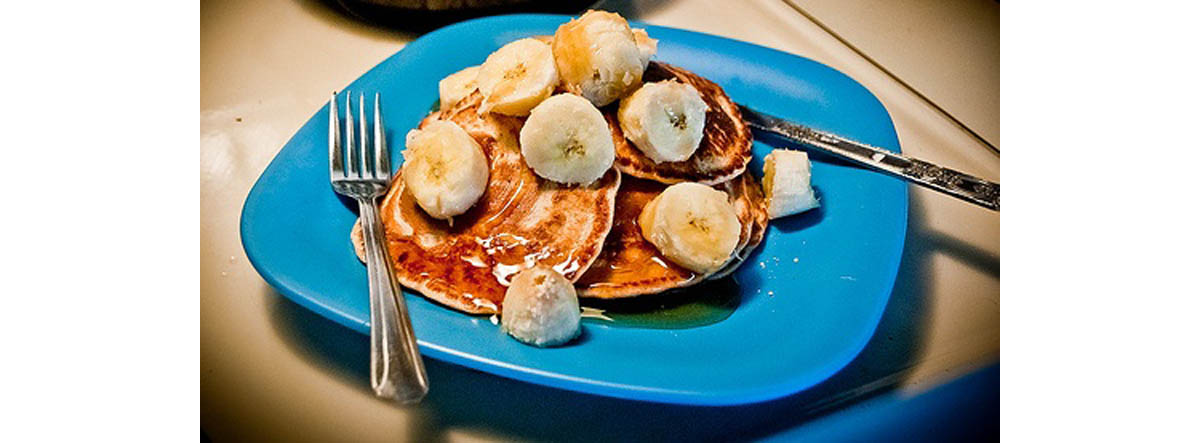Table of Contents
There are three pillars to a successful post workout cardio protocol.

As per nutrient partitioning, you want a blend of protein, carbs and fat in your post workout meal. If you don’t feel like eating a meal as soon as you finish, or you have to drive home or get to work immediately after your session, don’t sweat it, have a recovery shake as discussed a little later in the supplements section, then a solid meal one to two hours later.
Protein
Protein is vital, but often associated more with bodybuilders than cardio athletes, even though it’s equally as important.
You need protein to repair the damaged muscle tissues and even if your muscles aren’t feeling particularly sore now, they will be later on as delayed onset muscle soreness (DOMS) can take up to 24 hours to occur, and even if you don’t feel sore at all, muscle damage will still be present.
Carbs
Carbs are up second although in reality they may even be the most important of the three food groups. Carbs increase protein synthesis, meaning they shuttle protein to your muscles quicker than if you ate protein on its own, thus getting recovery underway in double quick time.
Carbs are also responsible for replenishing your blood sugar levels and stored carbohydrate. When you train your body uses carbs for energy, so it’s vital you replace these in your post workout meal. The amount of carbs you need will vary depending on the intensity, duration and type of exercise you were doing.
Generally though you should stick with 0.5 grams of carbs per kilogram of body-weight per hour of moderate intensity training and 0.75 grams per kilogram of body-weight per hour of intense training.
Fat
Fat is another variable nutrient. You don’t necessarily need to go out of your way to add a lot of fat to your post workout meal but it does serve a purpose. Fat is calorie-dense so can help replenish energy even further and a small intake of fat can also boost protein absorption. Add a teaspoon of olive oil or coconut oil, butter or nut butter or an ounce of mixed nuts or avocado to your protein and carbs.
Hydration
When you perform cardiovascular exercise, you sweat. A lot. Replacing this lost water is critical as just a small drop in fluid levels can lead to dehydration which is a major factor in reducing performance.
The key is to use your urine color as a guide. Ideally it should be close to being clear, with just a slight yellow tint. Any darker and you’re likely dehydrated. Your body can only absorb roughly one liter of water per hour, so aim to consume two liters in the two hours directly post workout.
To further aid hydration, consider an electrolyte based sports drink. You also lose vitamins, minerals and electrolytes in your sweat so a drink designed to replenish these can help. Any isotonic drink will work fine but if you get one with carbs in too, remember to include these in your total carb intake for your protocol.
Supplements
As mentioned, protein powder and sports drinks may aid in post workout recovery, as will pre-made recovery shakes. These generally have a three to one ratio of fast digesting carbs to protein and are a great quick fix if you can’t get a solid meal straight away.
Supplements certainly aren’t necessary, but there are a few others that may help after a grueling training session.
Multivitamin
Extra vitamins and minerals can aid recovery by maintain a stable internal body environment.
Fish Oils
The omega-3 fats in fish oils are anti-inflammatory, which can reduce muscle and joint soreness.
BCAAs
Branched Chain Amino Acids are a more readily available, rapidly absorbed form of protein, so get to your muscles quicker.
Glutamine
Glutamine has been shown in studies to reduce post training soreness.
Leucine
Another amino acid that boosts insulin sensitivity so that carbs are used more efficiently and increases protein synthesis.
Post workout nutrition is important as pre workout nutrition for cardio. You wouldn’t skip your pre workout or pre race meal, so don’t skimp on post workout either.
- “How to Recover After Hard Cardio”, By Maryann Karinch, Accessed on October 6th, 2012, Retrieved from http://www.humankinetics.com/excerpts/excerpts/how-to-recover-after-hard-cardio
- Photo courtesy of reid-bee on Flickr: www.flickr.com/photos/reid-bee/5341340153
- Photo courtesy of pamocampo on Flickr: www.flickr.com/photos/pamocampo/6258462493


Your thoughts on this